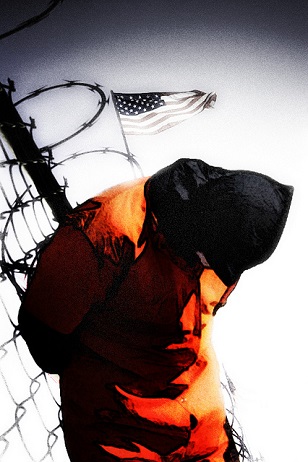Truthout is a vital news source and a living history of political struggle. If you think our work is valuable, support us with a donation of any size.
“The character of our country has to be measured in part, not by what we do when things are easy, but what we do when things are hard.”
Those were the words of President Obama, when he was asked over the summer about the CIA’s use of torture in the months and years after 9/11.
With the release of the Senate Intelligence Committee’s torture report today, it’s become abundantly clear that when times got tough, the US buckled under the pressure.
See more news and opinion from Thom Hartmann at Truthout here.
We lost sight of the values that built this country, and of the ideals that have made this country great.
That’s something that would deeply upset Abraham Lincoln.
Back on April 24, 1863, Abraham Lincoln signed General Order No. 100, otherwise known as the Instructions for the Government of Armies of the United States, or the Lieber Code.
The Lieber Code was a set of instructions signed by President Lincoln, which dictated how Union soldiers should conduct themselves during wartime, and how they should treat prisoners of war.
The instructions themselves were written by Francis Lieber, Lincoln’s top wartime legal authority.
The Lieber Code was so influential and powerful that many of its key components were included in the Hague Convention of 1899, and even into the Geneva Conventions and Nuremburg trials.
Unfortunately, somewhere along the way, we forgot about the Lieber Code, about the laws of war and about basic human rights.
So, what exactly was in the Lieber Code?
While it contains wide-ranging instructions on how to operate during wartime, a great deal of the Lieber Code deals with prisoners of war and how they should be treated.
For example, the Lieber Code said that it was illegal for soldiers to intentionally inflict more wounds on an enemy who was already captured, and made that act punishable by death.
Article 71 of the Lieber Code reads, “Whoever intentionally inflicts additional wounds on an enemy already wholly disabled, or kills such an enemy, or who orders or encourages soldiers to do so, shall suffer death, if duly convicted, whether he belongs to the Army of the United States, or is an enemy captured after having committed his misdeed.”
The Lieber Code also made it clear that prisoners of war weren’t to be exposed to any additional suffering while being held captive.
Article 75 of the Code reads that, “Prisoners of war are subject to confinement or imprisonment such as may be deemed necessary on account of safety, but they are to be subjected to no other intentional suffering or indignity.”
Basically, being held captive was bad enough. Prisoners of war didn’t need to suffer anymore.
Finally, the Lieber Code even referenced how prisoners of war were to be fed.
Article 76 stated that, “prisoners of war shall be fed upon plain and wholesome food, whenever practicable, and treated with humanity.”
That’s quite different than the forced-feedings or “rectal feedings” that are taking place at Guantanamo Bay today and took place in CIA “black sites” during the Bush administration.
A little over 150 years ago, there was absolutely no tolerance for torture in the US.
Then, on a pristine autumn day in 2001, that all changed.
Suddenly, Bush and Cheney cowered in terror – Bush down in Florida and then hysterically hopscotching across the country, while Cheney hid in an underground bunker. Their fear became our error; they were so frightened that they decided to set aside traditional US values.
That was a grave mistake and a huge lapse in our collective judgment.
Torture is not an US value. It’s that simple. We were always the country that stopped torturers, not the country that did the torture.
Today marks a new chapter in US history. Every US citizen should read the summary of the CIA torture report and learn from it.
And, as much as it may hurt, we must acknowledge that the Bush administration committed torture and war crimes, and we must promise to never, ever do these things again.
Meanwhile, while it looks unlikely that Bush administration cronies will ever be held criminally liable for their actions, let’s hold them accountable by pardoning them for the roles they played in one of the darkest chapters in US history, as the ACLU’s Anthony Romero suggested in today’s New York Times. It’ll be a brand on their foreheads that they’ll wear for the rest of their lives, and will follow them throughout history.
Torture has no place in US society. Let’s make sure it’s never allowed to rear its ugly head again.
A terrifying moment. We appeal for your support.
In the last weeks, we have witnessed an authoritarian assault on communities in Minnesota and across the nation.
The need for truthful, grassroots reporting is urgent at this cataclysmic historical moment. Yet, Trump-aligned billionaires and other allies have taken over many legacy media outlets — the culmination of a decades-long campaign to place control of the narrative into the hands of the political right.
We refuse to let Trump’s blatant propaganda machine go unchecked. Untethered to corporate ownership or advertisers, Truthout remains fearless in our reporting and our determination to use journalism as a tool for justice.
But we need your help just to fund our basic expenses. Over 80 percent of Truthout’s funding comes from small individual donations from our community of readers, and over a third of our total budget is supported by recurring monthly donors.
Truthout has launched a fundraiser to add 432 new monthly donors in the next 7 days. Whether you can make a small monthly donation or a larger one-time gift, Truthout only works with your support.
